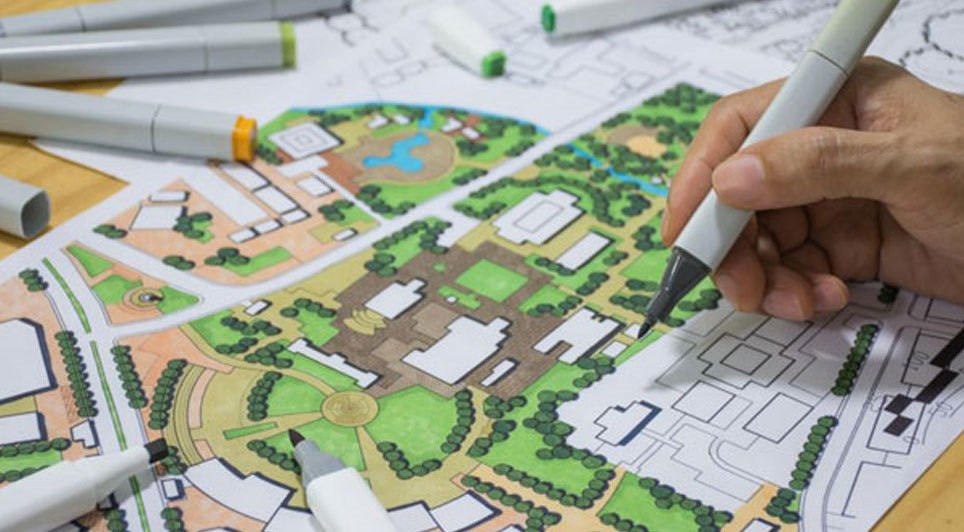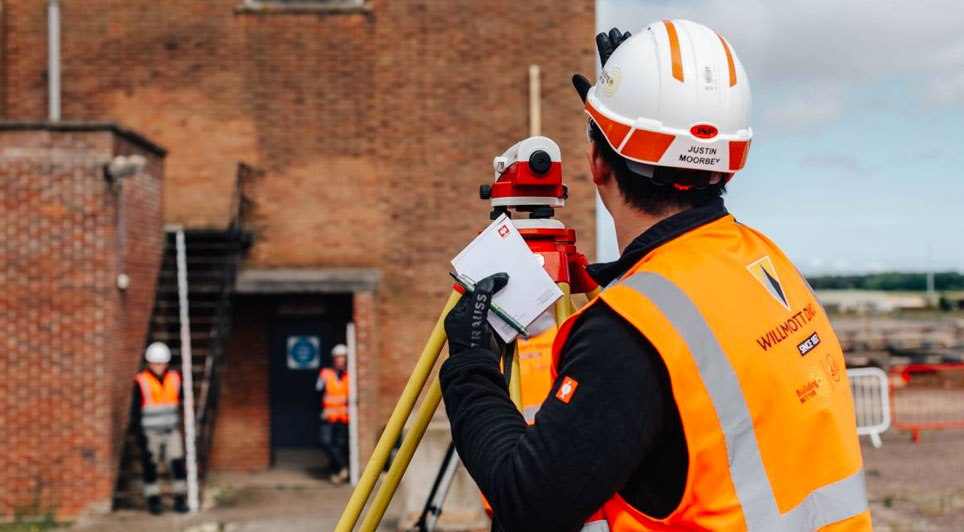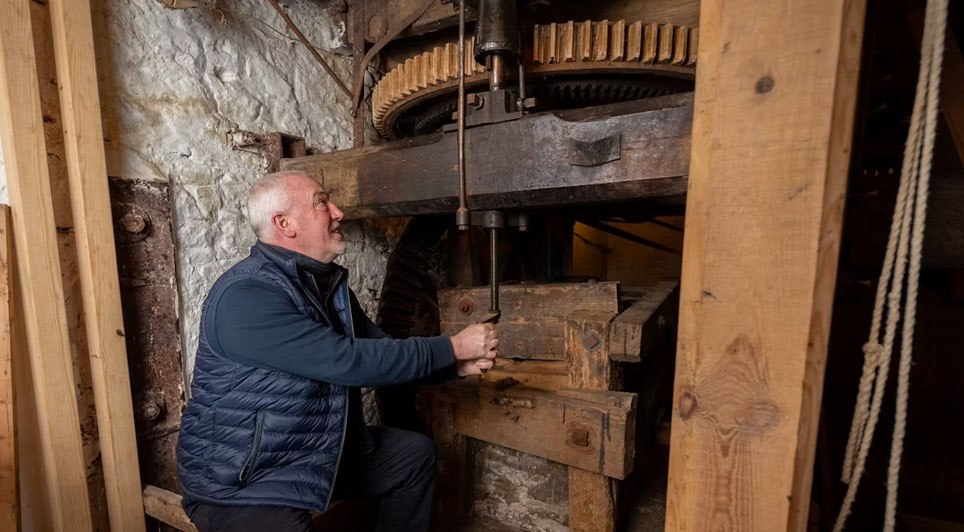Recent research has suggested that building designers need to anticipate increasing temperatures due to climate change in order to avoid homes, workplaces and other buildings going into 'meltdown' in the future.
To support them in this challenge, researchers at Heriot-Watt University have developed a diagnostic tool to test the performance of buildings.
Using 2009 climate projections, which suggest significant rises in UK temperatures over the next 70 years, the tool will allow building professionals to identify the risk of buildings overheating and becoming unfit for use, and to test low carbon solutions to reduce the risk.
Large cities and conurbations, particularly London, are vulnerable to 'urban heat island' effects, where the city experiences significantly higher temperatures than surrounding areas because of a greater retention of heat from the urban environment.
To counter these effects, Heriot-Watt researchers believe that existing buildings need to be adapted and new buildings designed to counter climate change, to reduce associated health risks and improve the quality of life for occupants. Using low carbon strategies will keep emissions and energy bills low.
Dr David Jenkins of the Low Carbons Future (LCF) project research team at Heriot-Watt explained: "It's widely recognised that climate change is going to have a major effect on our environment. As external temperatures rise so will the temperatures within our homes, schools, offices and other buildings.
"Although climate change information is available it can come in a complex format and be time intensive to analyse. This can make it difficult to consider in building design. The LCF tool simplifies the process, allowing building teams to test current and future designs and climate change adaptations in a realistic timeframe and useable format."
The LCF risk assessment tool is the result of a three-year research project which examined the risk of buildings overheating or existing cooling systems failing in a future climate. It modelled the performance of a number of buildings, in the housing, office and school sectors, against the projected climate in 2030, 2050 and 2080, for London and Edinburgh.
Without adaptations, the risk of these buildings overheating was found to be significant and, in the case of the office, air conditioning usage was projected to rise considerably.
Researchers also examined industry attitudes towards climate change and found wide variations in its importance in building design depending on a number of factors including location and sector.
In London, and the South of the UK, issues of overheating are of concern for homes and non-domestic buildings, but in Scotland, overheating is less of a concern as might be expected. Other extreme climate factors, such as flooding, often take precedence despite evidence suggesting that overheating is not uncommon in the non-domestic sector in Scotland.
Dr Jenkins added: "To combat the impact of climate change there needs to be a change in the way we design buildings.
"Unless we integrate adaptation into this process, we are likely to see an increase in the frequency of naturally ventilated buildings overheating and mechanically cooled, air conditioned, buildings using more energy, which in turn hinders our attempts to reduce carbon emissions.
"The industry needs to recognise and understand the issues of climate change and start planning to make adaptations not only in the workplace, but in our homes and other buildings. Academic research also needs to be more aware of how to integrate new ideas into existing building design, and be sensitive to the concerns of those practitioners putting these ideas into practice.
"Our research suggests that a range of simple measures from increased shading above windows to improved natural ventilation strategies can go a long way in making buildings more comfortable and better designed for the future."
(JP/CD)
Construction News
11/09/2013
New Research Warns Against Building 'Meltdown'

16/04/2025
Construction work on the £5 million repair and refurbishment project at the Loch Centre in Tranent is scheduled to commence in June 2026.
East Lothian Council has announced the anticipated start date for the significant upgrade to the well-used community facility.
Under the current timetable, the

16/04/2025
A £636,000 project to install solar panels at the Gorbals water pumping station in South Ayrshire has been successfully completed.
The scheme aims to provide a renewable energy source for pumping water to thousands of customers in the region.
The project involved the installation of 793 solar pan

16/04/2025
A planning application has been lodged with Glasgow City Council by The JR Group, acting on behalf of Wheatley Group, for the construction of 29 much-needed affordable homes in the Baillieston area of the city.
The proposed development on Caledonia Road will offer a mix of one- and two-bedroom apa

16/04/2025
Residents in 20 blocks of flats across Coatbridge are already experiencing the positive impacts of a recently completed, ambitious energy efficiency refurbishment project.
The extensive construction work has delivered significant improvements to the properties, including the installation of cavity

16/04/2025
Ground investigation works are commencing this month at the proposed site for Orkney Islands Council’s Scapa Deep Water Quay at Deepdale in Holm.
These initial investigations will be followed by marine-based site investigation works scheduled to begin in June.
These works form part of the Pre-Con

16/04/2025
Construction work has been finalised on a significant new housing development in Motherwell town centre, delivering 42 newly built, highly energy-efficient flats alongside the respectful conversion of the B-Listed YMCA building into a further six homes. The project, part of North Lanarkshire Council

16/04/2025
The Construction Industry Training Board (CITB) has today released its year-end performance data for its New Entrant Support Team (NEST), revealing a significant increase in apprenticeship starts. During the financial year 2024-25, NEST supported 4,128 individuals in commencing apprenticeships, a su

16/04/2025
A water-powered mill in Angus is set to grind grain once again after receiving a record-breaking donation to fund its restoration.
The National Trust for Scotland has announced that a long-time member of the conservation charity has gifted an incredible £2.4 million, one of the largest single dona

15/04/2025
Construction of a £70 million student accommodation development at 292-298 St Vincent Street in Glasgow has reached a significant milestone, with the building now visibly rising from the ground.
Drone footage has captured the progress of the project, which is a partnership between developer Artisa

15/04/2025
Energy regulator Ofgem is expected to confirm today (April 15) its finalised Connections Reform process, designed to expedite grid connections for renewable energy projects that are ready and crucial for achieving the UK's clean power targets for 2030 and beyond.
The new connections system, anticip
 Scotland
Scotland UK
UK Ireland
Ireland London
London










